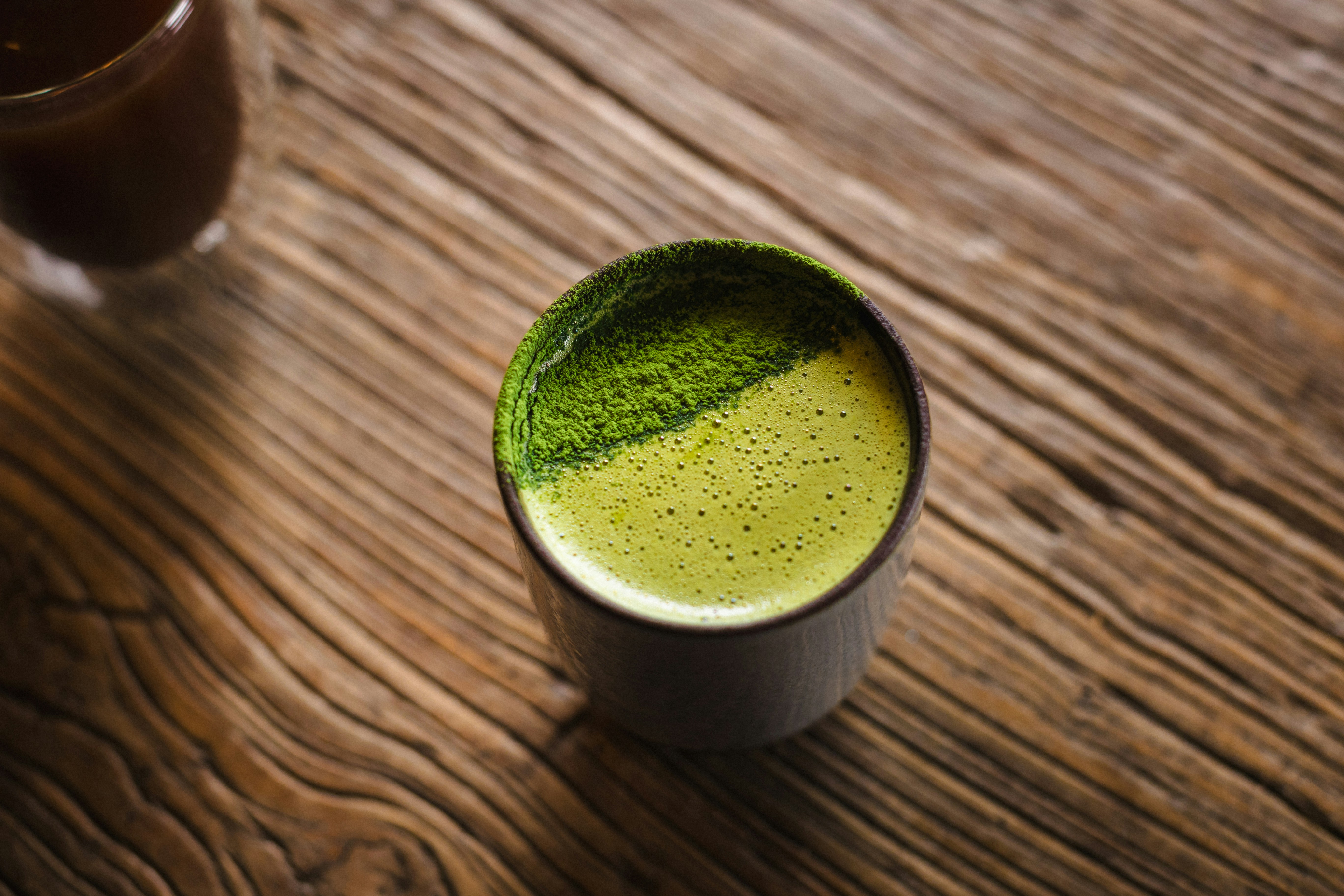Introduction: Tea’s Significance in Holistic Health
The holistic health philosophy emphasizes treating the individual as a whole, encompassing physical, emotional, and spiritual well-being. Within this comprehensive approach, tea emerges as a vital component, offering benefits that extend far beyond simple hydration. Tea’s historical significance is deeply intertwined with cultural rituals and medicinal practices across the globe. From ancient Chinese medicinal traditions to the elaborate tea ceremonies of Japan, tea’s enduring presence highlights its inherent value, extending beyond its role as a mere beverage. It represents a connection to history, nature, and mindful practice.
As modern society increasingly embraces holistic wellness, tea’s role continues to evolve. It is recognized as a valuable tool for achieving balance and promoting overall health. Derived from the Camellia sinensis plant, this versatile beverage boasts a rich history spanning millennia. From green tea to black tea, oolong to white tea, and the vast world of herbal infusions, each variety offers unique health benefits. This extensive history allows individuals to cultivate a personal connection with tea, drawing upon ancestral wisdom and integrating it into contemporary lifestyles.
In our demanding, fast-paced world, the search for strategies that support not only physical but also emotional and mental well-being is paramount. Tea provides a moment of respite, a chance to cultivate mindfulness through the simple act of brewing and savoring a cup. Personal experiences often reveal the soothing nature of tea preparation. Whether enjoyed in quiet solitude or shared with loved ones, tea cultivates a sense of community and connection. These shared moments not only support overall well-being but also strengthen interpersonal bonds, exemplifying the essence of holistic living.
Exploring the Rich Nutritional Profile of Tea
Tea, a globally cherished beverage, boasts a rich nutritional profile that contributes significantly to modern holistic health practices. Diverse varieties, including green, black, white, and herbal teas, are packed with essential vitamins, minerals, and antioxidants crucial for maintaining bodily functions and preventing diseases. Green tea, for example, is renowned for its high concentration of catechins, a type of antioxidant linked to improved metabolic rates and enhanced fat oxidation, potentially aiding in weight management.
Beyond catechins, black tea is a rich source of flavonoids, which possess anti-inflammatory properties known to support cardiovascular health. Studies have shown that regular consumption of black tea may contribute to lower cholesterol levels and improved heart health, highlighting its role in disease prevention. White tea, often considered the least processed variety, boasts high concentrations of antioxidants that combat oxidative stress, promoting cellular rejuvenation and contributing to overall vitality.
Herbal teas, although not derived from the Camellia sinensis plant, offer a plethora of health benefits. Chamomile tea, for instance, is well-known for its calming effects, largely attributed to its apigenin content, which can help reduce anxiety and improve sleep quality. Similarly, rooibos tea, caffeine-free and rich in minerals like calcium and manganese, is essential for maintaining bone health.
Integrating these various teas into a daily diet can lead to significant health improvements. By embracing a diverse range of teas, individuals can maximize their intake of beneficial nutrients and explore the unique flavor profiles each type offers. Conscious tea consumption transforms a simple pleasure into a powerful tool for health and wellness.
Tea for Enhanced Mental Clarity and Focus
In today’s demanding world, the pursuit of improved cognitive function and enhanced focus has led many to explore natural alternatives, with various types of tea gaining recognition. Green tea and yerba mate have emerged as popular choices, known for their stimulating properties and potential cognitive benefits. Green tea contains L-theanine, an amino acid that promotes relaxation without inducing drowsiness, leading to improved mental alertness. The synergistic combination of caffeine and L-theanine in green tea enhances focus and supports overall cognitive performance.
Yerba mate, derived from the leaves of the Ilex paraguariensis plant, is a traditional South American beverage celebrated for its robust caffeine content and rich array of antioxidants and nutrients. Many individuals report increased energy levels and heightened concentration after consuming yerba mate regularly. These benefits are attributed to the combined effects of caffeine and other compounds within the leaves, which may contribute to improved mental clarity and sustained productivity.
Anecdotal evidence from individuals who have incorporated these teas into their routines suggests significant improvements in focus and cognitive function. Many report increased productivity during work or study sessions when consuming these teas compared to other stimulants like coffee. However, moderation is essential. Excessive caffeine intake, even from tea, can lead to overstimulation, resulting in anxiety or sleep disturbances. Finding the optimal balance is key to maximizing the benefits while minimizing potential drawbacks.
Consuming tea, especially green tea and yerba mate, offers a natural pathway to enhanced mental clarity and focus. When consumed mindfully, these beverages can become valuable additions to a holistic health regimen.
The Soothing and Calming Effects of Herbal Teas
Herbal teas play a vital role in promoting relaxation and stress reduction, crucial in today’s fast-paced environment. Varieties like chamomile, lavender, and lemon balm are particularly renowned for their calming properties, making them essential components of many wellness routines. These caffeine-free herbal infusions offer not only soothing flavors but also contribute to mental tranquility and emotional stability.
Chamomile tea, a widely recognized herbal remedy, has a long history of use for aiding sleep and reducing anxiety. Its gentle sedative effects promote relaxation, making it a popular choice for those struggling with insomnia or overwhelming schedules. Many tea drinkers attest to chamomile’s effectiveness in unwinding after a long day, often describing a warm cup as a comforting bedtime ritual.
Lavender tea, celebrated for its soothing aroma and ability to alleviate stress and promote mental clarity, is another powerful herbal infusion. Traditionally used in aromatherapy, lavender is often incorporated into tea to maximize its benefits. Many tea enthusiasts report improved mood and enhanced sleep quality after incorporating lavender tea into their evening routines, highlighting its psychoactive effects.
Lemon balm, with its refreshing citrusy flavor, is also recognized for its calming attributes. This herb is believed to reduce anxiety and induce a sense of tranquility. Personal accounts suggest that individuals often turn to lemon balm tea during stressful periods, appreciating its ability to ease tension and promote a sense of peace. The increasing popularity of these herbal teas reflects a growing interest in natural remedies and their relevance in modern holistic health practices.
Tea as a Ritual for Cultivating Mindfulness
The act of drinking tea can transcend mere consumption and evolve into a profound ritual that cultivates mindfulness and strengthens spiritual connection. Traditional tea ceremonies, particularly in East Asia, transform the preparation and enjoyment of tea into a meditative experience. These ceremonies emphasize presence, encouraging participants to fully engage their senses – observing the tea’s color, inhaling its aroma, and savoring the complex flavors as they unfold.
In our distraction-filled modern lives, dedicating time for tea can be a powerful way to cultivate mindfulness. Setting aside a few moments each day to brew and savor a cup encourages us to pause, breathe, and center ourselves. This mindful practice fosters a deeper connection to the present moment, offering respite from the daily chaos. Individuals who have integrated tea rituals into their routines often report increased tranquility and heightened awareness, contributing significantly to overall well-being.
Many individuals find solace in their tea rituals, transforming the experience into a cherished moment of reflection. One practitioner shared how her nightly tea session became an oasis of calm in her busy schedule, helping her unwind and process the day’s events. Another individual described how participating in a traditional tea ceremony connected him to his heritage, making him feel grounded and more attuned to his surroundings.
Tea as a mindfulness ritual is not solely about the beverage itself; it’s about creating an intentional space for self-reflection and presence. In the complexities of modern life, integrating tea rituals can serve as a gentle reminder to slow down and fully experience each moment.
The Importance of Tea in Community and Connection
Throughout history, tea has been a cornerstone of social interaction across diverse cultures, serving not just as a beverage but as a vital element in communal gatherings. The act of sharing tea strengthens relationships by creating an environment for open communication and mutual understanding. From the Japanese tea ceremony to the Moroccan mint tea ritual and the British afternoon tea tradition, these practices highlight the importance of hospitality and togetherness.
The therapeutic effects of communal tea drinking extend beyond the immediate pleasure of the beverage. Many cultures recognize tea’s calming properties, which promote relaxation and ease anxiety during social interactions. The simple act of brewing and sharing tea encourages mindfulness, enabling participants to appreciate the present moment and enhance emotional well-being. The Chinese Gongfu tea brewing practice, for example, intricately involves not just the preparation itself but also an appreciation of the entire process, engaging the senses and fostering a shared experience.
Tea gatherings provide a platform for storytelling and cultural exchange, offering opportunities to embrace traditions and share personal narratives. These exchanges foster a sense of belonging among participants, creating shared experiences that transcend individual differences. Many find solace in community tea gatherings, where the collective act of sipping tea deepens connections and strengthens emotional resilience.
In diverse communities, tea acts as a unifying element, breaking down barriers and encouraging inclusivity. The shared enjoyment of tea rituals creates bonds, reminding us that regardless of background, we can connect over a simple cup of tea. Tea transforms ordinary moments into extraordinary connections, emphasizing the role of communal practices in nurturing mental health and emotional stability.
Tea and Physical Health: Exploring the Potential Benefits
Tea, one of the world’s most widely consumed beverages, is treasured for its diverse flavors and notable health benefits. Numerous studies suggest that various types of tea, including green tea, black tea, and herbal infusions, positively influence different aspects of physical health. Heart health, digestive efficiency, and weight management are some of the key areas where tea’s benefits are particularly prominent.
Research indicates that regular green tea consumption can significantly benefit cardiovascular health. The potent antioxidants known as catechins in green tea are linked to reduced LDL cholesterol levels and improved blood circulation. These properties can lower the risk of heart disease and contribute to overall heart health. Black tea also shows promise in promoting healthy blood pressure levels, further solidifying its role in cardiovascular wellness.
Another significant benefit of tea is its support for digestive health. Herbal teas like peppermint and ginger are often recommended for alleviating gastrointestinal discomfort. These teas work by relaxing the gastrointestinal tract and aiding digestive processes, proving especially beneficial after meals. Certain compounds in black and green tea may also improve gut microbiota, further enhancing digestive function.
Weight management is another area where tea has gained attention. Green tea, in particular, is popular for its potential to boost metabolism and promote fat oxidation. Studies suggest that the combination of caffeine and catechins in green tea can stimulate metabolic processes, assisting in weight maintenance or achieving a healthy weight. While incorporating tea into a wellness regimen is encouraged, it’s crucial to remember that these benefits should complement, not replace, conventional medical treatments and lifestyle modifications.
Integrating Tea into Your Holistic Health Regimen
Incorporating tea into your daily life can significantly enhance your holistic health routine. With its diverse flavors and potential health benefits, tea becomes a natural ally in your wellness journey. Start by understanding the various types of tea available – green, black, herbal, and white – each offering unique properties that align with specific health goals. Green tea, for example, is celebrated for its antioxidant properties, while chamomile tea promotes relaxation and better sleep.
Once you’ve chosen a tea type that resonates with your health objectives, focus on the brewing process. A cup of tea should be a mindful experience, not a rushed activity. Pay attention to water temperature and steeping time, as these factors significantly influence flavor and medicinal qualities. For example, black tea usually requires boiling water and a three to five-minute steep, while delicate green tea prefers water around 175°F and a shorter two to three-minute steep. This attention to detail enhances the experience and maximizes the health benefits.
Creating a personalized tea routine streamlines tea’s incorporation into your lifestyle. Set aside specific times for tea breaks – morning, afternoon, or evening. These pauses provide not only enjoyment but also opportunities for reflection and mindfulness. Many have shared transformative stories of reduced stress and improved well-being after systematically incorporating tea into their routines. Let these experiences inspire you to explore different blends and flavors that align with your health aspirations.
Conclusion and Reflection on the Power of Tea
As we conclude our exploration of tea’s multifaceted benefits within modern holistic health, it’s crucial to acknowledge its significant role in enhancing both physical well-being and emotional balance. We’ve examined the numerous ways tea can support a healthier lifestyle, from its antioxidant properties to its potential for stress relief. Integrating tea into daily routines offers both healthful benefits and opportunities for personal reflection and mindfulness.
The journey with tea invites us to examine our relationship with this ancient beverage, appreciating its cultural significance, diverse flavors, and healthful properties. Each cup can symbolize a moment of pause, a connection to tradition, and an opportunity to cultivate community. Whether you prefer a calming herbal infusion or a robust black tea, these experiences foster connection and promote wellness.
We encourage you to embrace tea not merely as a health aid but as a means of connecting with yourself and others. Share your personal tea experiences – a cherished recipe, a favorite tea moment, or a wellness practice you’ve developed. Engage with your local or online wellness communities, exchanging insights, recommendations, and rituals that reinforce tea’s profound role in holistic health.
Cultivating a culture of shared tea experiences enriches individual journeys and strengthens community ties. As you continue exploring the world of tea, may it inspire you to prioritize health and well-being while connecting with others who share your passion. Connecting over tea transcends a simple act; it embodies a lifestyle steeped in wellness, reflection, and personal growth. The journey of tea is an ongoing exploration of flavor, health, and connection.







Leave a Reply